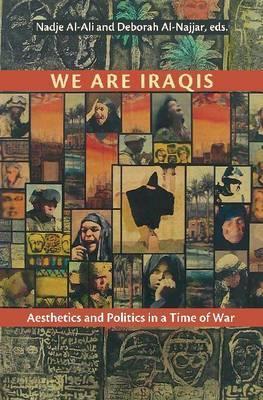
While the occupation of Iraq and its aftermath has received media and political attention, we know very little about the everyday lives of Iraqis. Iraqi men, women, and children are not merely passive victims of violence, vulnerable recipients of repressive regimes, or bystanders of their country’s destruction. In the face of danger and trauma, Iraqis continue to cope, preparing food, sending their children to school, socializing, telling jokes, and dreaming of a better future. Within the realm of imagination and creative expression, the editors find that many Iraqi artists have not only survived but have also sought healing. In We Are Iraqis, Al-Ali and Al-Najjar showcase written and visual contributions by Iraqi artists, writers, poets, filmmakers, photographers, and activists. Contributors explore the way Iraqis retain, subvert, and produce art and activism as ways of coping with despair and resisting chaos and destruction. The first anthology of its kind, We Are Iraqis brings into focus the multitude of ethnicities, religions, and experiences that are all part of Iraq.
Author

Nadje Sadig Al-Ali (Arabic: نادية صادق العلي) is the author of Iraqi Women: Untold Stories From 1948 to the Present. and co-author with Nicola Pratt of What Kind of Liberation? Women and the Occupation of Iraq. Born to an Iraqi father and German mother, and having lived in Egypt for several years and being involved in the Egyptian women's movement, Al-Ali is also Professor of Gender Studies at the Center for Gender Studies at the School of Oriental & African Studies (SOAS). Al-Ali graduated from the University of Arizona (BA), University of Cairo (MA) and received a PhD from the anthropology department of the School of Oriental and African Studies (SOAS), University of London in 1998. She is currently chairing the Centre for Gender Studies at SOAS. She is also President of the Association of Middle East Women's Studies (AMEWS), and a member of the Feminist Review Collective. Alongside her academic career, Nadje Al-Ali is a political activist and was a founder of the Iraqi British organisation Act Together: Women's Action for Iraq in 2000. She is also a member of the London branch of Women in Black, a worldwide network of women who are against war and violence. Many of her publications reflect the lives of Iraqi women and recent struggle to voice their opinions during the US-led invasion of Iraq. (from Wikipedia)